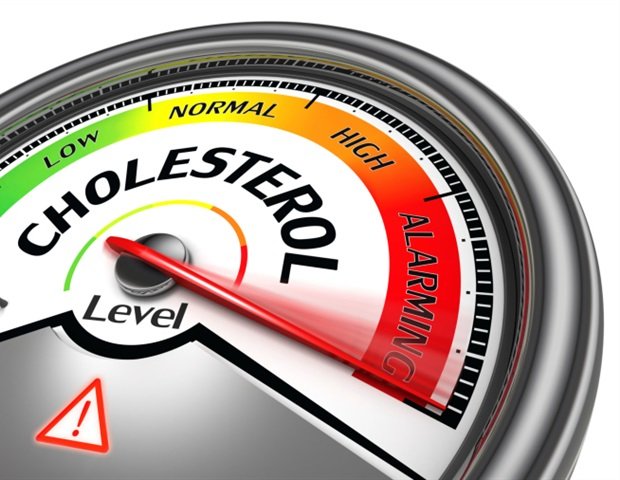Finally, there’s good news for many of our favorite Christmas foods. A turkey meal with all the trimmings and a traditional dessert can lower levels of “bad” LDL cholesterol and improve the ratio of good HDL cholesterol, a leading test expert reveals.
This Christmas, you can eat one of your favorite meals without worrying about your cholesterol levels, says a leading blood test expert. Some of our favorite “naughty but nice” Christmas foods, from turkey or salmon to some (albeit fortified) dairy products, can actually help achieve a better cholesterol balance. Even the traditional nuts and sultanas at the bottom of our Christmas stockings are proving great at raising our ‘good’ HDL cholesterol and lowering our ‘bad’ LDL cholesterol.
Dr Avinash Hari Narayanan (MBChB), Clinical Lead at the London Medical Laboratory, says: “Many people still think that all cholesterol is harmful. However, it is only LDL (low-density lipoprotein) cholesterol, often known as “bad” cholesterol, that does the damage. LDL carries cholesterol into your arteries. It can lead to plaque buildup, resulting in poor blood flow. In general, the higher the LDL cholesterol levels, the greater the risk for coronary heart disease.
“On the other hand, high-density lipoprotein (HDL) cholesterol can be called ‘good’ cholesterol. Think of HDL as a vacuum cleaner for cholesterol. When HDL is at healthy levels in your blood, it removes excess cholesterol and plaque buildup in your arteries and then sends it to your liver. Your liver then removes it from your body. This helps reduce the risk of heart disease, heart attack and stroke.
“There are many foods popular during the holiday season that can help lower your LDL levels, which improves your HDL to LDL ratio. The good news is that this includes that perennial Christmas favorite, turkey, along with many other festive meats like chicken breast.
“This is because research shows that fatty fish, chicken breast and turkey are good natural sources of niacin. Niacin is also known as vitamin B3. It can help lower cholesterol and other fats in your blood. Niacin helps increase good HDL cholesterol, lower LDL cholesterol, and also lowers another type of fat in your body called “triglycerides.”
“That’s the meat you’re looking out for for your Christmas meal – what about the vegetables? A 2016 study published in the journal Nutrients showed that a diet rich in antioxidants increased levels of “good” HDL cholesterol relative to triglycerides. Antioxidants can also help you stay healthy by preventing cell damage in the body. Foods high in antioxidants include beets, purple cabbage, kale and spinach. But what about that Christmas staple, Brussels sprouts? Brussels sprouts are high in antioxidants, second only to kale and spinach. Just half a cup of cooked Brussels sprouts will also give you nearly half of your daily recommended amount of vitamin C.
“No Christmas meal would be complete without roast potatoes. The good news is that the crust has zero fat and cholesterol and is low in sodium. It is also rich in antioxidants and vitamins that help our body function properly.
“Certainly, baking is not the healthiest way to prepare potatoes, especially if you use lard or goose fat. However, using unsaturated cooking oils such as olive oil is healthier for the heart. The same goes for low-fat sunflower cooking sprays and canola oil. Canola oil is particularly high in sterols. Sterols and stanols are plant chemicals similar in size and shape to cholesterol. They are absorbed into the bloodstream and actually block some cholesterol from being absorbed, lowering your blood cholesterol. While we do get a small amount of sterols from plant foods like vegetable oils, it’s not really enough to make a big difference, so food companies have developed products with plant sterols or stanols added to them. These fortified foods include some fat spreads, such as the ProActiv brand.
“What about dessert? Can minced meat and yula logs also help lower “bad” LDL cholesterol? Unfortunately, no. But the good news is that traditional winter foods like baked apples or pears help lower overall cholesterol levels. Berries, another popular sweet treat, are also rich in antioxidants.
“Unfortunately, you may not be able to enjoy them with cream. Along with whole milk, cheese and yogurt, it contains unhealthy saturated fat. However, there are now companies producing milks and yogurts that contain sterols and stanols. Benecol, for example, offers a range of products. These fortified foods can help you reach the amount of sterols and stanols needed to help lower your cholesterol, says the British Dietetic Association.
“If people are worried about their cholesterol levels as we approach Christmas, it’s best to get them checked. As GP surgeries are extremely busy at this time of year, it is important to recognize that there are alternatives. London Medical Laboratory’s revolutionary and convenient home cholesterol test measures total cholesterol, “bad” LDL cholesterol, “good” HDL cholesterol, non-HDL (a newly adopted, more accurate measure) and other key indicators . It can be collected at home by post or at one of the many clinics offering these tests across London and nationally at over 120 selected pharmacies and health shops.
Source:
